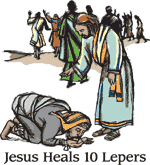This Sunday, May 19, we celebrate the Pentecost
commemorating the coming of the Holy Spirit to the 12 Apostles. Though the Holy
Spirit is such a part of who we are; the Holy Spirit is probably the most
misunderstood or confusing part of the Trinity.
The Trinity refers to the fact that God is one God in three persons –
God the Father, God the Son, and God the Holy Spirit.
It’s not so difficult to know and understand God the Father
who is Creator of all. It is also not so
difficult to understand God the Son, Jesus who lived on earth, taught, healed,
and died for us on the cross; however, most people don’t quite understand the
Holy Spirit even though the Holy Spirit is such a significant part of our lives. The Holy Spirit is so significant that Jesus
even says to the disciples, “Nevertheless, I tell you the truth: it is to your advantage that I go away, for
if I do not go away, the Advocate (which by the way is another name for the
Spirit), the Advocate will not come to you; but if I go, I will send him to
you.”
Using the Apostles Creed, which is the Christian statement
of faith, we even confess our faith focusing on the Holy Spirit in what we call
the third article of the creed that begins, “I believe in the Holy
Spirit….” In his writing of the Small Catechism, Martin Luther explains
the Holy Spirit and the third article ‘on being made holy’.
Luther wrote, “I believe that by my own understanding or
strength I cannot believe in Jesus Christ my Lord or come to him…In other
words, we broken humans are incapable of belief in Jesus Christ on our own. …but
instead the Holy Spirit has called me through the gospel, enlightened me with
his gifts, made me holy, and kept me in the true faith…” In other words, since we cannot come to
believe on our own, it is the Holy Spirit that brings us, guides us, or leads
us to faith.
Luther continues, “… just as he calls, gathers, enlightens,
and makes holy the whole Christian church on earth and keeps it with Jesus
Christ in the one common, true faith.” In
other words, it is the Spirit that brings us together today and each time
Christians gather. It makes us holy and
helps unite us together.
As the Church celebrates this gift that came upon the
disciples and crowd as they were gathered on the day of Pentecost, we give
thanks and pray that the Holy Spirit continue to work in and through us each
day.
God's Peace,
Pastor Percy












